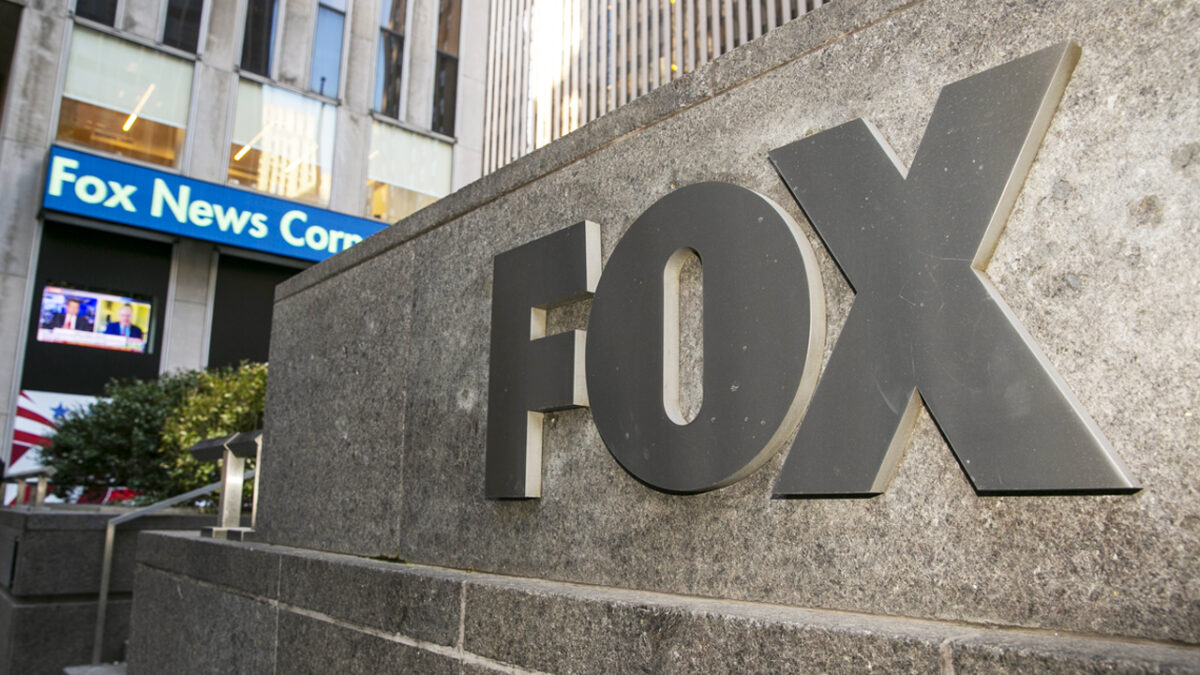Fox and Dominion Exchange Last-Minute Arguments Over Amount of Admissible Damages on Eve of Trial

Ted Shaffrey, AP
One billion dollars is still a lot of money, but it is arguably a significantly smaller sum than $1.6 billion.
That $600 million difference is the core part of an eleventh-hour dispute between Dominion Voting Systems and Fox News in the defamation case going to trial in Delaware this week.
Dominion Voting Systems’ lawsuit against Fox is proceeding forward — albeit with a one-day delay — but the plaintiff voluntarily decided to not present one of their claims to the jury, a decision which representatives for Fox claimed knocked off a sizable chunk of Dominion’s claimed damages.
The $1.6 billion complaint filed by Dominion accuses Fox of airing false claims on the Fox News Channel and Fox Business Network about Dominion’s voting machines related to former President Donald Trump’s baseless claims of fraud in the 2020 presidential election. Pre-trial discovery in the litigation revealed a trove of documents in which Fox’s on-air personalities and top executives exchanged emails and text messages acknowledging Trump had lost the 2020 election, that his claims the election was stolen from him via fraud were unfounded, and lamenting the Jan. 6, 2021 attack on the U.S. Capitol. An additional trove of documents with previously redacted comments was released last month.
On March 31, Delaware Superior Court Judge Eric M. Davis issued a summary judgment ruling that was broadly viewed as devastating to Fox, finding that all twenty of the “Statements” made on air (on either FNC or FBN) about Dominion were statements of fact and not protected opinion and it was “CRYSTAL clear” (emphasis in original) that they were all false and constituted defamation per se. The judge also rejected several legal defenses Fox wished to assert as well as the media giant’s efforts to limit damages, finding it a matter for the jury.
That jury will be selected starting Tuesday morning, and at a hearing earlier this month, Judge Davis ruled that several key Fox executives, including Rupert Murdoch, Lachlan Murdoch, and Paul Ryan will have to testify live in person at the trial.
In the original complaint filed by Dominion, the company claimed several types of damages, which they alleged totaled $1.6 billion: “(1) lost profits of not less than $600,000,000; (2) lost enterprise value of not less than $1,000,000,000; (3) security expenses of not less than $600,000; and (4) expenses incurred combatting the disinformation campaign of not less than $700,000.”
On Friday, Brian Farnan, one of the attorneys representing Dominion, confirmed by email to Fox’s counsel that “Dominion will not be presenting its claim for lost profits damages to the jury, given that it is duplicative of the lost enterprise value damages.”
Fox “has made clear that Dominion’s damages are wildly inflated which Dominion has now finally admitted at the 11th hour,” a Fox spokesperson told Mediaite, characterizing Dominion’s decision to not present the lost profits damages to the jury as “knocking more than a half a billion dollars off their damages claim.”
Reached for comment by Mediaite, however, a spokesperson for Dominion insisted that the damages remained at the same level: “The damages claim remains. As Fox well knows, our damages exceed $1.6B.”
As part of the pretrial motions, both parties presented reports by expert witnesses they sought to have testify at trial. At least one of those witnesses proffered by Dominion, Mark J. Hosfield, characterized Dominion’s damages allegedly suffered by Fox’s defamatory statements as a collective group, and Judge Davis accepted Hosfield’s expert report as sufficient to allow his testimony at trial.
Essentially, what seems to be happening here is Dominion delineated its damages into more discrete categories in the pretrial phase and as the case moved to trial, sought to simplify the arguments — too many moving pieces can be confusing for juries to analyze — and attempt to prove their damages in a combined category rather than several separate ones. Fox seems to be arguing that Dominion has forfeited $600 million of their claimed damages, Dominion is insisting it has done no such thing, and the whole kerfuffle seems headed for the jury to sort out.
In a hearing last week addressing the parties’ motions in limine (pretrial motions to limit or exclude certain types of irrelevant or prejudicial evidence), the judge granted Dominion’s motion to preclude Fox from “arguing that defamatory statements made by individuals or organizations other than Fox rebut or reduce Dominion’s damages.”
Then in a motion for clarification filed Sunday, Fox’s attorneys requested that Judge Davis specify if he was precluding Fox from introducing defamatory statements made by others — specifically naming Trump — about Dominion just regarding the plaintiff’s proof of damages, or if Fox would be barred from bringing up Trump’s statements across the board at the trial.
The motion lays out a key part of Fox’s legal defense: that Fox hosts “reported on this content” of the “barrage of statements and tweets” from Trump as well as interviewing the then-president, because it was newsworthy coming from a President of the United States.
Fox wished to present this evidence at trial, the motion argued, “not as a ‘backdoor’ to defenses already ruled upon, but rather to explain and contextualize the subjective state of minds of those [Fox] reporters”:
As New York courts have observed, relying on official sources (and the U.S. President and his lawyers are plainly official sources) shows an absence of actual malice. A jury is much more likely to infer that a reporter did not know the allegations were false or harbor serious doubts about their truth when the highest official in the country was making the same claims. And the fact that the President was making the claims publicly undermines Dominion’s theory that the allegations were inherently implausible, because the jury entitled to consider and decide that allegations being made by a sitting U.S. President have credibility because of who is making the allegations. The same is true for the common law malice showing required for punitive damages: a jury is much more likely to conclude that Fox hosts did not cover the Dominion allegations because of hatred, ill will, or spite toward Dominion if they reported the claims because the President was making them. The jury should hear all of this. (Citations omitted.)
Of course, Fox’s arguments that their reporters “did not know the allegations were false or harbor[ed] serious doubts about their truth” gets muddied by the evidence in the case showing that their own top executives and on-air personalities did in fact seem to know that the allegations were false, or, at best, unproven, with so many private text messages and emails circulating among the on-air personalities and executives — and contradicting what was being said publicly on-air — but that seems to be a fact-finding matter for the jury.
It will also be interesting to see how Trump’s well-documented track record for misrepresentations, exaggerations, conspiracy mongering, and flat-out lies weighs into how much reporters are entitled to rely upon the ex-president as an “official source” such that would abrogate their legal duty to not play ostrich and stick their collective heads in the sand to avoid seeing the falsity of Trump’s outlandish claims.
Fox also argued that the fact that Trump “or other networks,” like Fox’s conservative competitors OAN and Newsmax, also made defamatory statements about Dominion, should be an additional burden for Dominion to prove that the statements made specifically by Fox caused its injuries, and not the statements made by others. The motion urged the judge to allow Fox to present such evidence at trial and allow the jury to decide if Dominion was in fact injured by Fox’s publication of the statements.
Mediaite’s Aidan McLaughlin and Colby Hall are in Wilmington, DE this week to cover the trial.
This article has been updated with additional information.
Have a tip we should know? tips@mediaite.com




